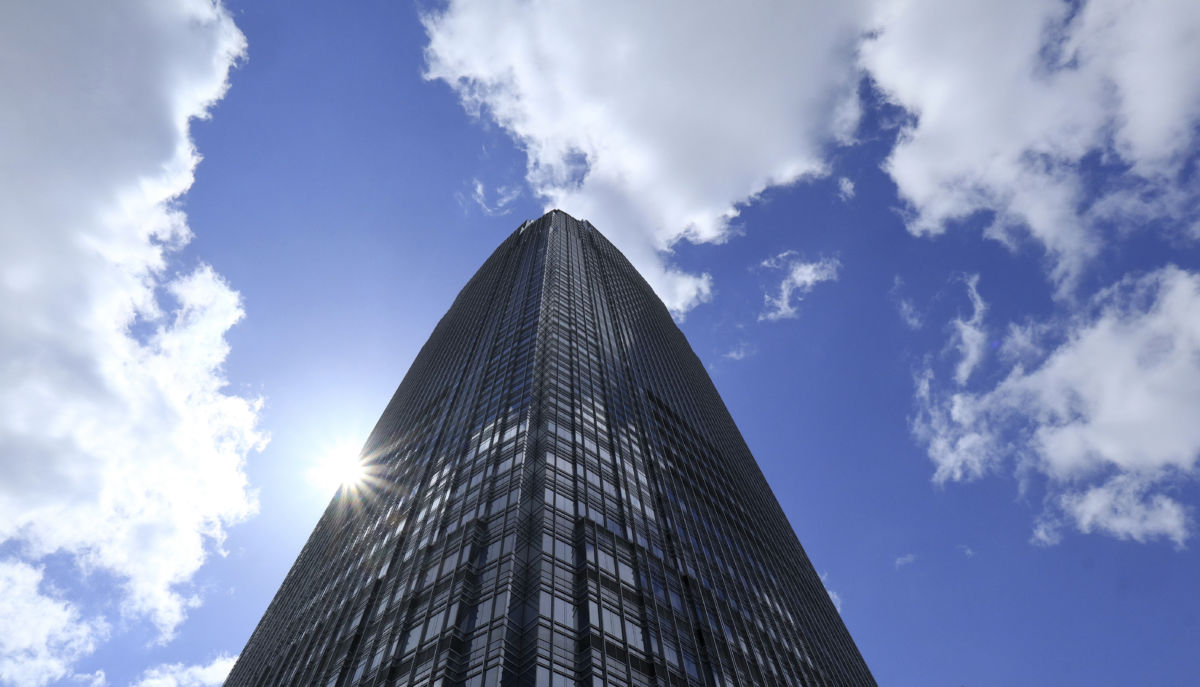Honest, paywall-free news is rare. Please support our boldly independent journalism with a donation of any size.
For far too long, Wall Street has wreaked havoc on people’s personal financial stability and our economy as a whole. I should know. As a managing director at Goldman Sachs in the early 2000s, I witnessed firsthand how the banking industry lined their pockets at the expense of customers.
Not much has changed since then. After the mortgage fraud crisis of 2007-08, the biggest banks were slapped with $216 billion in fines – a drop in the bucket for firms that raked in a cool $237 billion last year alone. Infamously, not a single banker went to jail. Today, Wall Street banks continue to commit fraud, enjoy front-row lobbying seats in Washington, write legislation on their own behalf, and maintain easy access to credit courtesy of the Federal Reserve.
The Dodd-Frank Act of 2010 placed some regulations on banks’ riskier bets. But, crucially, that reform failed to divide banks into two entities: one dealing with people’s FDIC insured deposits, and the other able to create complex securities and engage in derivatives trading using our deposits as collateral. Ten years after the financial crisis, our money is still very much at risk of being gambled away.
This isn’t just about protecting individuals’ personal nest eggs. State and city governments deposit their funds in these banks, too. This means that our own tax dollars are underwriting Wall Street’s most reckless investments — from the oil companies warming our climate to the private prisons jailing our kids to the gun manufacturers who have turned our schools into free-fire zones.
This is why it is more important than ever to create public banks tasked with using state and local funds for public good, not private profit. And my home state of California is leading the way. A new bill, AB 857, backed by the California Public Banking Alliance would give cities the freedom to start public banks accountable to the communities they serve. Based on North Dakota’s successful model – now celebrating its 100th year – these banks would reinvest public funds in their communities by offering low-interest business and student loans, investing in clean energy, and supporting local infrastructure projects.
These socially responsible investments draw a sharp contrast with Wall Street’s anything-goes ethos. These mega-firms are not legally required to invest in local infrastructure, provide reasonable loans, or look out for the environment – so they don’t. Despite having received billions in federal aid, the biggest banks have focused more on paying out CEO bonuses than supporting the customers and taxpayers who keep them in business. More often than not, they invest in projects that put us squarely in harm’s way, like the Keystone XL and Dakota Access Pipelines. The Wall Street model privatizes profit while socializing harm, from oil spills to mass shootings.
This is particularly true for Californians, who have experienced – and will, sadly, likely continue to experience – record wildfires and mudslides as a result of Wall Street-financed climate change. Here, on the front lines of the climate crisis, it is crucial to have public banks that can divert funds to rebuilding homes and businesses and helping residents get back on their feet, rather than relying on disaster relief funds from the Trump administration or multinational banks that may not be forthcoming. Reconstruction would also be cheaper. As it stands, half of the total cost of some infrastructure projects goes toward paying Wall Street banks’ high interest rates and loan fees.
Beyond disaster response, states across our nation are sorely in need of better roads, ports, bridges and railways, more affordable higher education, and fully funded public schools. Public banks would lend financial support to these and other pro-social endeavors, providing community control over where and how these funds are allocated. Just as importantly, they will challenge Wall Street to curb industry abuses. Right now, the City of San Jose is poised to waive its own policy against doing business with wage theft violators so it can contract with JPMorgan Chase Bank, which had to pay $160 million in fines to settle 22 such cases of withholding appropriate wages from low-level employees. Public banks would allow cities to professionally manage their money without sacrificing their values.
At its best, California has been defined by its creativity, progressive thought and entrepreneurial ingenuity. Joining North Dakota in the public banking arena would be a testament to the historical strength and spirit of California – and a vital economic blueprint for the rest of the nation.
Matching Opportunity Extended: Please support Truthout today!
Our end-of-year fundraiser is over, but our donation matching opportunity has been extended! All donations to Truthout will be matched dollar for dollar for a limited time.
Your one-time gift today will be matched immediately. Your monthly donation will be matched for the whole first year, doubling your impact.
This matching gift comes at a critical time. As Trump attempts to silence dissenting voices and oppositional nonprofits, reader support is our best defense against the right-wing agenda.
Help Truthout confront Trump’s fascism in 2026, and have your donation matched now!
